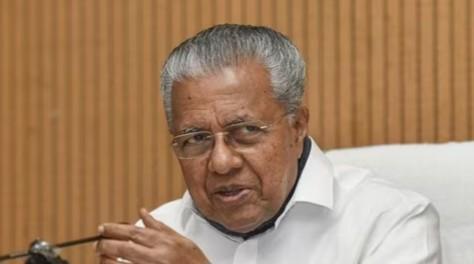
Title: Attack on Federalism: Kerala CM on Bills to Remove Jailed PM, CMs
The recent development in the Indian political landscape has sent shockwaves across the nation. The Constitution (130th Amendment) Bill, 2025, tabled in the Parliament today, has been strongly criticized by Kerala Chief Minister Pinarayi Vijayan. According to Vijayan, this bill is a blatant attack on federalism and the rights of states. In this blog post, we will delve into the details of the bill and its implications on the Indian political system.
The Bill seeks to remove Prime Ministers, Chief Ministers, and Ministers who are arrested or detained for at least 30 days from their respective positions. This move has been hailed by some as a necessary step to prevent the politicization of the judiciary, while others see it as an attempt to undermine the democratic process.
Kerala CM Pinarayi Vijayan is one of those who strongly opposes the bill. In a statement, he said, “This bill is a blatant attack on federalism and the rights of states. It seeks to destabilise non-BJP governments by weaponising central agencies and jailing opponents on false charges.” Vijayan’s remarks come in the backdrop of the ongoing political crisis in the country, where several leaders, including opposition party members, have been arrested and detained on charges of corruption and other criminal offenses.
Vijayan’s concerns are not unfounded. The bill, if passed, would give the central government sweeping powers to remove elected representatives from office without due process. This would undermine the principle of federalism, which is the cornerstone of India’s constitutional framework. Federalism is a system of government where power is divided between the central government and the states, with each having a degree of autonomy.
The Kerala CM’s statement has sparked a heated debate on social media, with some arguing that the bill is necessary to bring accountability to public office, while others see it as an attempt to silence opposition voices. While the debate rages on, it is essential to examine the implications of the bill on the Indian political system.
One of the significant concerns is the potential for abuse of power. If the central government can remove elected representatives from office without due process, it would create an environment where political opponents can be targeted and silenced. This would undermine the democratic process and create an atmosphere of fear and intimidation.
Another concern is the impact on the stability of the government. If the bill is passed, it could lead to a situation where governments are toppled without a legitimate reason. This would create a sense of instability and uncertainty, which could have far-reaching consequences for the country.
The bill has also raised concerns about the potential for misuse of central agencies. The Kerala CM has alleged that the bill seeks to weaponise central agencies and use them to silence opponents. This is a serious concern, as central agencies like the Central Bureau of Investigation (CBI) and the Enforcement Directorate (ED) have a history of being misused to target political opponents.
In conclusion, the Constitution (130th Amendment) Bill, 2025, is a contentious issue that has sparked a heated debate on social media. While some argue that the bill is necessary to bring accountability to public office, others see it as an attack on federalism and the rights of states. The Kerala CM’s concerns about the potential for abuse of power, misuse of central agencies, and destabilization of non-BJP governments are valid and warrant serious consideration.
As the debate continues, it is essential to remember that the Indian political system is built on the principles of federalism and democracy. Any attempt to undermine these principles would have far-reaching consequences for the country. It is crucial that the government and the opposition come together to find a solution that balances the need for accountability with the need to protect the democratic process.
News Source:






